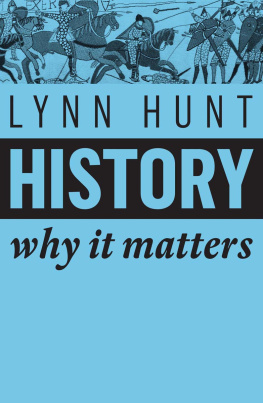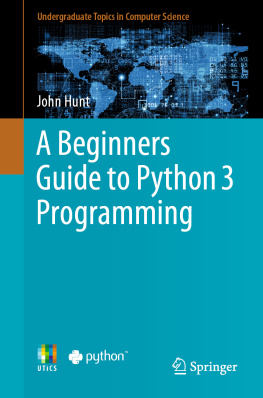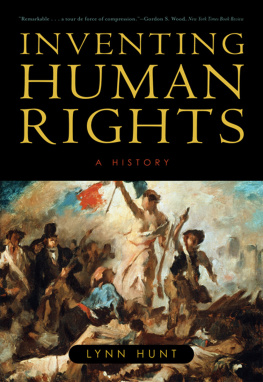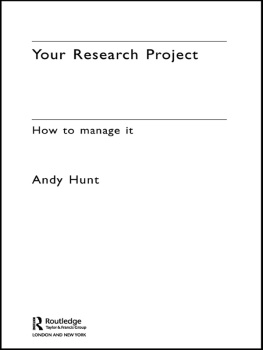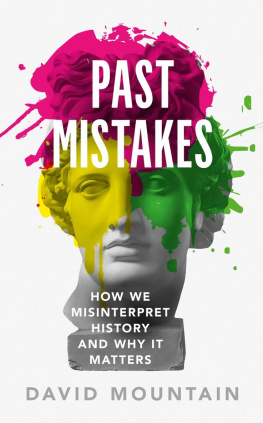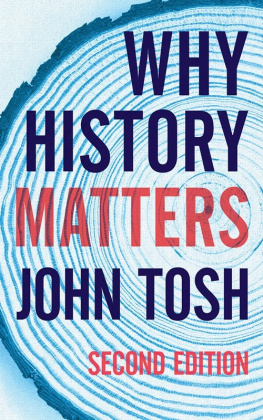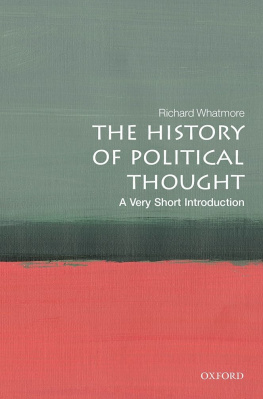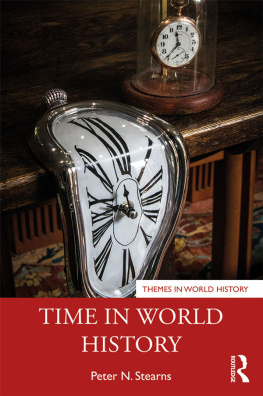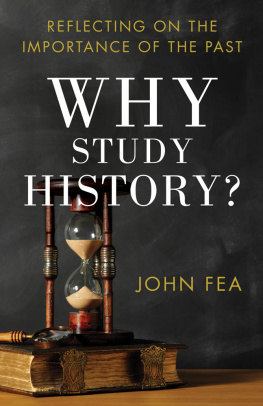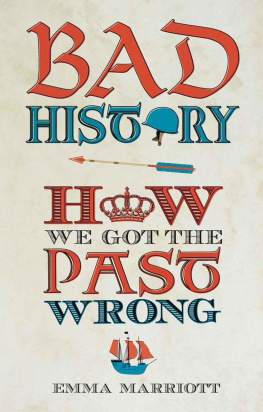Contents
Guide
Pages

Politys Why It Matters series
In these short and lively books, world-leading thinkers make the case for the importance of their subjects and aim to inspire a new generation of students.
Lynn Hunt, History
Tim Ingold, Anthropology
Neville Morley, Classics
History
Why It Matters
Lynn Hunt
polity
Copyright Lynn Hunt 2018
The right of Lynn Hunt to be identified as Author of this Work has been asserted in accordance with the UK Copyright, Designs and Patents Act 1988.
First published in 2018 by Polity Press
Polity Press
65 Bridge Street
Cambridge CB2 1UR, UK
Polity Press
101 Station Landing
Suite 300
Medford, MA 02155, USA
All rights reserved. Except for the quotation of short passages for the purpose of criticism and review, no part of this publication may be reproduced, stored in a retrieval system or transmitted, in any form or by any means, electronic, mechanical, photocopying, recording or otherwise, without the prior permission of the publisher.
ISBN-13: 978-1-5095-2555-3
A catalogue record for this book is available from the British Library.
Library of Congress Cataloging-in-Publication Data
Names: Hunt, Lynn, 1945
Title: History : why it matters / Lynn Hunt.
Description: 1 | Cambridge ; Medford, MA : Polity, 2018. | Series: Why it matters | Includes bibliographical references and index.
Identifiers: LCCN 2017059695 (print) | LCCN 2017060653 (ebook) | ISBN 9781509525577 (Epub) | ISBN 9781509525539 (hardback) | ISBN 9781509525546 (paperback)
Subjects: LCSH: History--Philosophy. | History--Social aspects. | History--Political aspects. | Historiography. | BISAC: HISTORY / General.
Classification: LCC D13 (ebook) | LCC D13 .H854 2018 (print) | DDC 901--dc23 LC record available at https://lccn.loc.gov/2017059695
The publisher has used its best endeavours to ensure that the URLs for external websites referred to in this book are correct and active at the time of going to press. However, the publisher has no responsibility for the websites and can make no guarantee that a site will remain live or that the content is or will remain appropriate.
Every effort has been made to trace all copyright holders, but if any have been inadvertently overlooked the publisher will be pleased to include any necessary credits in any subsequent reprint or edition.
For further information on Polity, visit our website: politybooks.com
Now More Than Ever
Everywhere you turn, history is at issue. Politicians lie about historical facts, groups clash over the fate of historical monuments, officials closely monitor the content of history textbooks, and truth commissions proliferate across the globe. As the rapid growth in history museums shows, we live in a moment obsessed with history, but it is also a time of deep anxiety about historical truth. If it is so easy to lie about history, if people disagree so much about what monuments or history textbooks should convey, and if commissions are needed to dig up the truth about the past, then how can any kind of certainty about history be established? Are heritage sites and historical societies set up to provoke, console, or simply divert? What is the purpose of studying history? This book lays out the questions and offers ways of answering them. It will not resolve all the quandaries, since history is by definition a process of discovery and not a settled dogma. But it can show why history matters now more than ever.
Lying
In one of the highest profile examples of lying about history, real estate developer Donald Trump came to public attention in 2012 by insinuating that then President Barack Obama had not been born in the United States and so had been illegitimately elected president. When Obama presented his birth certificate, confirming that he had been born in the state of Hawaii, Trump immediately retorted that it might be fraudulent, even though he had no evidence that it was falsified. During the presidential campaign in 2016, Trump abruptly changed course and admitted that Obama was born in the United States. He proceeded to take credit for ending a controversy that he helped fabricate. That phony polemic now attracts fewer devotees but other fake ones endure, the most prominent being Holocaust denial.
Politicians and a few writers on the extreme right in Europe have sought their fifteen minutes of fame by denying the reality of the deliberate murder of six million Jews between 1933 and 1945. Denial can take various forms, from asserting that many fewer than six million died or that Hitler and the Nazis had no official plan for genocide to the notion that the gas chambers did not exist. Holocaust denial has become the model for those who want to lie about history; its promoters simply refuse to admit the validity of eyewitness accounts of victims and of those who liberated the concentration camps as well as the subsequent painstaking historical research that has established the names and numbers of those killed and traced the means and motives of the perpetrators in excruciating detail. Although historians can and do disagree about how best to interpret the Holocaust, no serious scholar or reader of history doubts the truth that these murders were deliberate and took place on a mass scale.
Yet despite repeated refutations based on mountains of documentation, and despite the exemplary official and unofficial German efforts to come to terms with those crimes, Holocaust denial still percolates across Europe and the rest of the world, often via social media such as Facebook.
Blatant lying about history has become more common owing to the influence of social media. The world-wide web has enabled historical lies to flourish because on the internet virtually anyone can post anything under any name, without prior scrutiny and with no possible sanction. The most outlandish claims circulate widely and gain a measure of credibility just because they are circulating. In this situation, insisting on historical truth has become a necessary act of civic courage.
Historians are rarely subject to the death threats, fatwas, or actual assassinations that threaten journalists, novelists, and opposition figures in too many places, but they have often found themselves at the center of controversy. Authoritarian governments do not like historians known for insisting on inconvenient truths. The popular French historian Jules Michelet was fired from his teaching position by the government of Louis-Napoleon Bonaparte in 1851 because students sometimes left his rousing lectures shouting anti-government slogans. The police had sent undercover agents to attend his classes and then released doctored copies of his lecture notes in the hopes of tainting his reputation. Several of Michelets colleagues cravenly agreed to censure his teaching to prepare the way for government action. He was then fired from his position at the national archives for refusing to take a loyalty oath after Louis-Napoleon executed a coup against the legislature, which had refused to grant his request for a waiver of his term limit. Michelet, however, was luckier than the hundreds of other opponents of the coup who were arrested and forcibly transported to the penal colony of Cayenne in French Guiana.
As the example of Michelet shows, even normally mild-mannered historians can find themselves in the line of fire in times of political or international crisis. In 1940, Time magazine reported that the author of a popular history textbook in the United States, Harold Rugg, had been accused of being a communist who depicted the United States as a land of unequal opportunity and class conflict. Labeled a subversive because he failed to teach real Americanism, Rugg had his books banned by some school districts and even publicly burned by a school board official in one Ohio town. Textbook authors and in particular textbook publishers will usually go to great lengths to avoid controversy in order to appeal to the broadest possible markets, but as the example of Rugg demonstrates, disputes about historical truth are always lurking around the corner.

